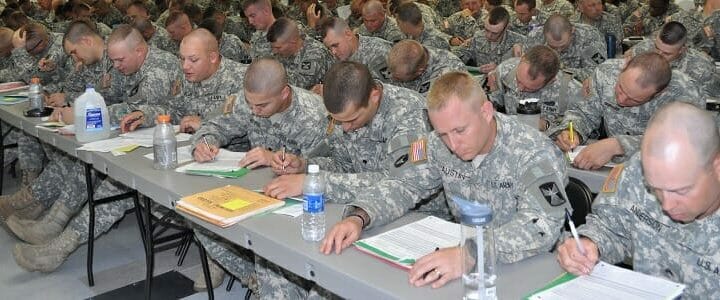By definition the Transition Assistance Program, known as TAP, is “the overarching program that provides transition assistance, information, training, counseling, and services to eligible transitioning Service members to be career ready upon separation, retirement, or release from active duty, thus enabling Service members to pursue additional education, seek or return to employment in the public or private sector, start their own business, pursue vocational training, or other form of self-employment.” Until recently, TAP was a one-size-fits-all program that regardless if the service member was an officer or enlisted and regardless of what they wanted to do after getting out, everyone received the same training.
But that all changed on October 1st when TAP underwent an overhaul and is now known as TAP Refresh. This program update came about due to a law change in the National Defense Authorization Act of 2019.
Timeline of Tap Change
One of the big changes is the TAP timeline. Before Refresh, servicemembers could start their TAP no later than 89 days from separation. Now servicemembers can start TAP as early as 15 months before leaving the military or almost a full year earlier than before.
Transition Preparation
Now as early as 15 months out, service members receive a questionnaire by email to help them identify what they feel they need before they separate. Some may want to go to school; others may want to go right into the civilian workplace with the skills and training they already have; still others may choose to start their own business after getting out. Based on the completed questionnaire, the servicemember then sits down with a professional counselor for a one-on-one, face-to-face interview to further define and refine the level of assistance the servicemember feels they need to bridge the gap between the military and their upcoming civilian life.
After the interview, servicemembers are assigned one of three tier levels depending on the outcome of their interview:
- Tier 1 – Ready to transition and consequently must only attend the first three days of mandatory TAP.
- Tier 2 – Almost ready, but still need some assistance. They therefore are required to attend the TAP three-day session and are recommended to attend one or more of the additional two-day track offerings.
- Tier 3 – Are not transition ready at all. They get the three-day TAP and are mandated to attend the additional courses as applicable to their situation.
Mandatory Three-Day Workshop
In the standard three-day TAP workshop, each day has now been assigned to a specific entity. For example:
- Day One – Department of Defense (DOD) Day
- Day Two – Veterans Affairs Day
- Day Three – Department of Labor Day
DOD Day
During this day, servicemembers go through a military occupational crosswalk to see where they would best fit in the civilian workplace with their current skills. Also included in this day are sessions on financial counseling and resiliency.
Veterans Affairs Day
During VA day, servicemembers are briefed on their veteran’s benefits and how they may best use them. This replaces the curriculum that used to be provided on day five under the old TAP.
Department of Labor
On DOL day, servicemembers are taught how to write a resume and search for a job. For many, the military has been their only job since high school and they have never had to write a resume or apply for a job.
Additional Two-Day Tracks
Once through the three-day workshop, servicemembers can choose one or more of three two-day tracks offered to better prepare them for transition:
- Career Technical Training and Exploration – Members explore careers within the DOD and how to apply for these jobs.
- Boots to Business – The Small Business Administration (SBA) identifies resources available to members who want to start their own business. Graduates of this track are also enrolled in a free eight-week course on the nuts and bolts of starting a business.
- Assessing Higher Education – This track is for members who plan to go to school after getting out. GI Bill use options, degree and non-degree options and choice of schools are just a few of the topics discussed in this track.
One other positive outcome from TAP Refresh is that servicemembers with the same goals now receive the same tailored transition training regardless of their service branch. That was not always the case under the old TAP.
TAP Refresh is now poised to better prepare separating servicemembers (and spouses as they can also take the same training) to bridge the gap between military service and civilian life.



